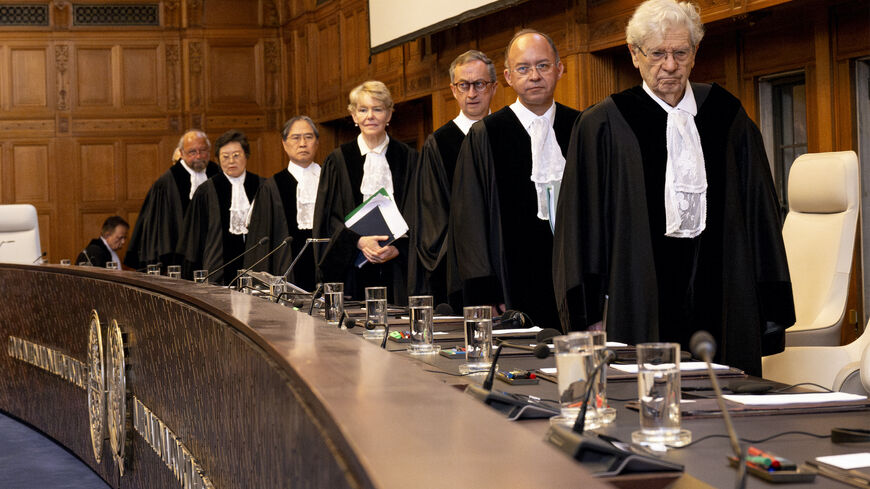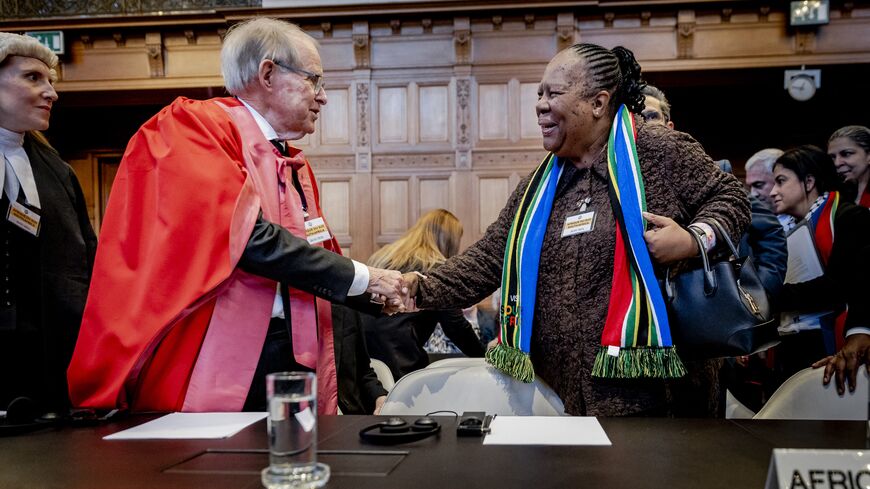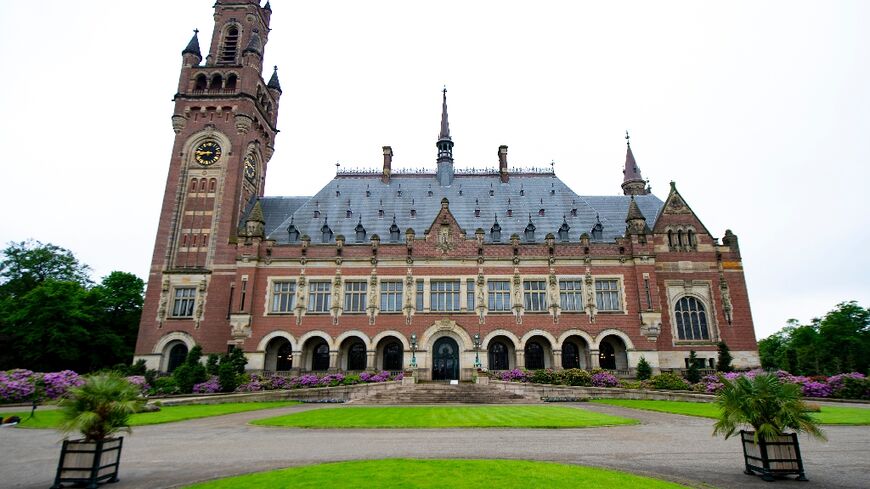ICJ to host hearing on Israel's Rafah operation
The International Court of Justice will conduct hearings this Thursday and Friday to discuss a new request by South Africa to order Israel to stop its Rafah operation.

The International Court of Justice in The Hague said Tuesday it will hold hearings on Thursday and Friday to discuss new emergency measures sought by South Africa concerning Israeli military operations in the southern Gaza Strip city of Rafah.
South Africa’s lawyers will present their arguments on Thursday and Israel will deliver its response on Friday.
On May 10, Pretoria demanded that the ICJ order Israel to halt its military activity in Rafah. In its petition, South Africa noted that the military landscape in Rafah had changed and requested new provisional measures.
"The changes in the situation in Gaza brought about by Israel’s military assault on Rafah relate to the fact that Rafah is the last population centre in Gaza that has not been substantially destroyed by Israel and as such the last refuge for Palestinians in Gaza," Pretoria wrote in its request.
Pretoria is now asking that the ICJ order Israel to "immediately withdraw and cease its military offensive in the Rafah Governorate" and for Israel to "immediately take all effective measures to ensure and facilitate the unimpeded access to Gaza of United Nations and other officials engaged in the provision of humanitarian aid and assistance to the population of Gaza."
Ongoing case against Israel
The expected hearings are part of an ongoing case against Israel at the Court. On Dec. 29, 2023, South Africa petitioned the ICJ to investigate whether Israel had been committing genocidal acts in Gaza in breach of the Convention on the Prevention and Punishment of the Crime of Genocide, of which both countries are signatories. Israel has denied all of South Africa's allegations.
The South African petition included two parts. The first was the request for the court to determine that Israel breached the genocide convention. The ICJ is still reviewing that request. Deliberations could continue for several more months, perhaps even years. In addition, South Africa asked the ICJ to issue provisional measures, similar to injunction orders, for Israel to stop its military operations in Gaza.
On Jan. 26, the ICJ issued provisional measures calling on Israel to “take all measures within its power to prevent the commission” of forbidden acts under the Genocide Convention. It also instructed Israel to “take all measures within its power to prevent and punish the direct and public incitement to commit genocide.” Still, the ICJ did not order Israel directly to halt its military operations in the Strip.
On March 28, the ICJ deliberated on a second request by South Africa for provisional measures and called on Israel to "take all necessary and effective measures to ensure, without delay, in full co-operation with the United Nations, the unhindered provision at scale by all concerned of urgently needed basic services and humanitarian assistance." Still, it did not order Israel to halt its military operation.
Other countries join South Africa’s complaint
Several countries have joined South Africa in its complaint against Israel, including Brazil, Bolivia, Chile, Algeria, Saudi Arabia, the Netherlands and Bangladesh. Turkey joined on May 1 and Egypt joined last Sunday.
As a signatory to the Genocide Convention, Israel has sent representatives to appear in court for the initial hearings. Like South Africa, it appointed its own representing judge to take part on the ICJ panel.
Israel is not a member of the Rome Statute, the legal framework of the International Criminal Court in the Hague. As such, it denies the ICC, which weighs cases against individuals, has jurisdiction over it and the ICJ has no means to enforce its decisions.






